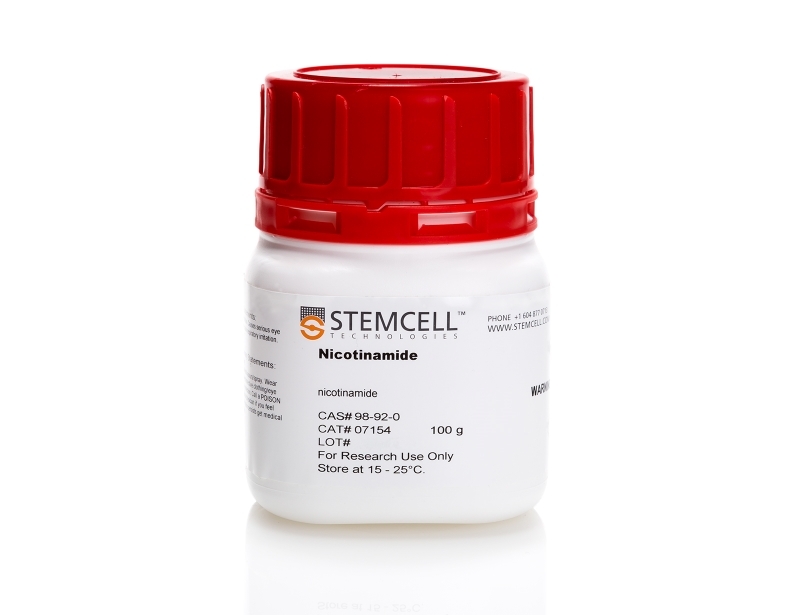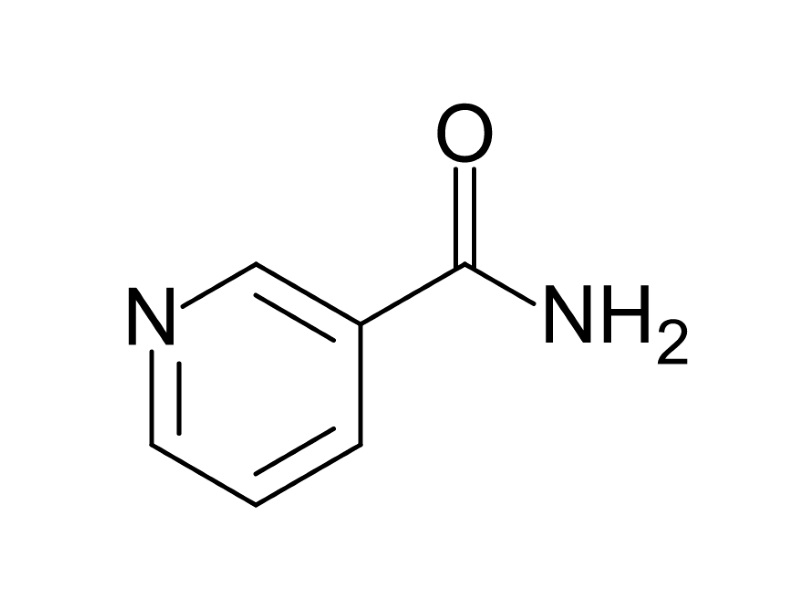概要
Nicotinamide (NAM) is a cell culture supplement used in the differentiation of embryonic stem (ES) and induced pluripotent stem (iPS) cells. It is an amide derivative of vitamin B3, a poly (ADP-ribose) polymerase (PARP) inhibitor, and represents the primary precursor of NAD+. Nicotinamide has also been shown to modulate stem cell differentiation in various applications, most notably for the differentiation of pancreatic mouse ES and iPS cells to pancreatic islet-like insulin-secreting cells.
技术资料
| Document Type | 产品名称 | Catalog # | Lot # | 语言 |
|---|---|---|---|---|
| Product Information Sheet | Nicotinamide | 07154 | All | English |
| Safety Data Sheet | Nicotinamide | 07154 | All | English |
数据及文献
Publications (1)
The Journal of clinical investigation 1993 SEP
Nicotinamide is a potent inducer of endocrine differentiation in cultured human fetal pancreatic cells.
Abstract
Abstract
The effects of nicotinamide (NIC) on human fetal and adult endocrine pancreatic cells were studied in tissue culture. Treatment of the fetal cells with 10 mM NIC resulted in a twofold increase in DNA content and a threefold increase in insulin content. This was associated with the development of beta cell outgrowths from undifferentiated epithelial cell clusters and an increase in the expression of the insulin, glucagon, and somatostatin genes. DNA synthesis was stimulated only in the undifferentiated cells. Half-maximal doses for the insulinotropic and mitogenic effects of NIC were 5-10 and 1-2 mM, respectively. Islet-like cell clusters cultured with NIC responded to glucose stimulation with a biphasic increase in insulin release (fourfold peak), whereas control cells were unresponsive to glucose. Both control and NIC-treated cells developed into functional islet tissue after transplantation into athymic nude mice. As compared with adult islets, the insulinotropic action of NIC could only be demonstrated in the fetal cells. Our results indicate that NIC induces differentiation and maturation of human fetal pancreatic islet cells. This model should be useful for the study of molecular mechanisms involved in beta cell development.

 网站首页
网站首页




